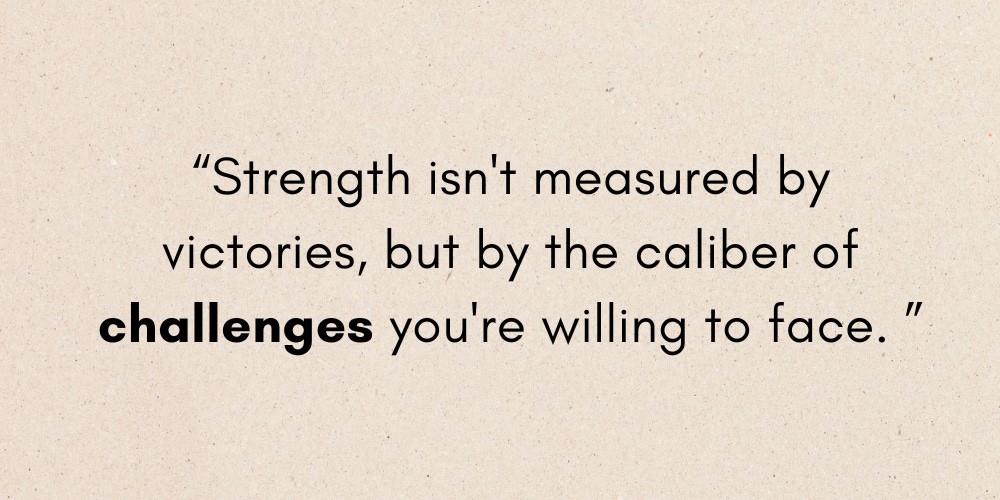What feeling regret is trying to tell you
Prepare for chaos, trust your gut, adapt fast. Reframe regret. Protect pure play. Your worth is inherent—stop trying to earn it.
November 22nd, 2025 - Issue #145 - read online
👋 Welcome to Pursuit—your weekly pause for intentional living, self-discovery, and inner clarity. My name is Amir, and every week I share four carefully chosen ideas to help you design a more fulfilling life.
This week’s reflections:
🌊 The storms will come—trust your compass
😔 What feeling regret is trying to tell you
🤹🏼 Don’t sacrifice play
🥰 A sense of worth you should have never had to earn
Next week I’m going to Tehran after four years—the longest I’ve been away from my hometown. Because of that, I won’t be writing next week’s post. I’ll see you in two weeks.
🌊 The storms will come—trust your compass
Reading these quotes this morning reminded me: the future is always uncertain. What matters isn’t eliminating that uncertainty. It’s how much we prepare, how deeply we trust our intuition, and how willing we are to adapt when plans shift.
Preparation always beats planning. Planning is based on the expectation of order. Preparation is based on the expectation of chaos. Plan for order and you’ll be destroyed by chaos. Prepare for chaos and you’ll thrive in any condition.
The worst decisions in life are made when you allow your head to talk you into something when your gut already said no. Rule for life: Never let your head outsmart your gut.
Adaptability is the single most important trait for life. The explorer doesn’t set out on his voyage trusting that the seas will remain calm and that he will stay perfectly on course; but rather, in his ability to adapt when the inevitable storms and chaos arrive. You are the explorer and life is your voyage. You don’t need to trust in your plan or your intelligence. You need to trust in your ability to adapt.
😔 What feeling regret is trying to tell you
Regret often disguises itself as perfectionism—the belief that we could have made flawless decisions if we had just tried harder. But this mindset traps us in the past, fueling guilt and shame instead of real growth.
The truth is, regret isn’t about the event itself; it’s about refusing to accept the limits of who we were at the time. Growth begins when we stop judging our past selves through the lens of who we are now.
Wistful uncertainty about the past is inevitable. Holding onto it is optional.
Instead of trying to eliminate regret, ask yourself: which regret could I bear living with? Which decision would I struggle to live without?
When you choose to believe that you did the best you could with the information and experience you had, regret loses its grip.
You can’t run life twice. You can only choose the story you tell about it—and that story shapes the quality of your life.
🤹🏼 Don’t sacrifice play
Last week I watched an interview with a bioecologist who said something that stuck with me: humans learn through play. That’s why kids are always playing—they’re learning about the world. When you try to teach them through lectures or lessons, they resist. They want to learn, and they learn best through play.
A few days later, one of my best friends asked me a question I struggled to answer: What do you do purely for joy, without any expectation of impact or outcome?
When I thought about it, I realized most things I enjoy also serve a purpose. I write because I love it, but there’s always an output. Same with everything else I do. It made me wonder: Have I lost touch with pure play? With doing something just for the sake of doing it, no outcome attached? How about you—what do you do for the joy of it alone, without expecting anything meaningful to come from it?
🥰 A sense of worth you should have never had to earn
Do you ever ask yourself if you work too hard? Dr. Gabor Maté, a well-known physician, author, and speaker known for his work on trauma, has an interesting take on working too hard:
Working hard isn’t the problem. It’s working too hard that leaves a mark.
No one regrets the effort it takes to build something meaningful. What they regret is being driven by invisible forces they didn’t even realize were there.
We might not understand how much of our ambition came from trying to justify our existence—to prove we mattered. That drive wasn’t fueled by passion. It was rooted in early wounds—a lack of feeling valued simply for being.
When children are celebrated just for existing, they don’t spend their lives trying to prove their worth. But if love only comes through achievements, the message is clear: you are valuable because of what you do, not because of who you are.
And that’s when the striving becomes endless. Not because you love the work—but because you’re still chasing a sense of worth you should have never had to earn.
🎵 Music I’m listening to
You’ll find mostly Ethnotronica, Organic House, World, Disco, and Organic Electronic here:
🎧 If you appreciate the music I carefully select and haven't followed my Spotify playlists yet, now is the perfect time to hit that follow button and join me on this musical journey! 🎶
🌒 Pano: Danceable and electronic obscure songs
🌓 Sisy: Ethnotronica and organic house
🌑 Berghain: Dark, minimal techno and tech house
🌕 Heide: Groovy soul and disco house
🌞 Sonntag: Afterhours shit
🦥 Slow rave: Sleepy techno for tired danced
🌎 World: From Latin jazz to Turkish psych
🌚 Super Slow: For your intimate moments
Previously on Pursuit:




